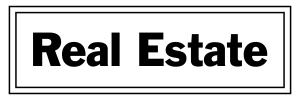Coalition of landlords issues position paper on proposed rent control
"Tenant advocates have mistakenly attempted to equate rent control with protecting from gentrification"
With a referendum on track for February or March for a vote on a proposed rent control ordinance backed by the Asbury Park Affordable House Coalition [APAHC], a coalition of landlords today issued their critique of the proposal in a position paper.
The City Council first has the opportunity to vote to approve the proposed ordinance. If they don’t, APAHC has obtained enough signatures for the ordinance to be on the ballot. The council has scheduled a public hearing on Dec. 22 to consider the measure.
In a news release accompanying their position paper, the Asbury Park Property Owners Coalition [APPOC] called on the council to reject the ordinance and begin hearings and a dialogue on delivering relief to distressed households who rent.
The following is the full news release issued by the APPOC, followed by the full text of their position paper.
RENT CONTROL POSITION PAPER RELEASED BY ASBURY PARK PROPERTY OWNERS COALITION
ASBURY PARK, N.J. DECEMBER 15, 2020 – The Asbury Park Property Owners Coalition [APPOC] released a position paper today on the proposed rent control ordinance for Asbury Park and urged the Council to reject it and conduct hearings on solutions to provide affordable housing to families in need.
The Coalition’s position includes outlining the devastating impacts from the proposed ordinance for tenants and property owners. While expressing compassion for families in need of assistance, the Coalition also pointed out that Governor Murphy issued an executive order postponing matters of significant public interest until after the Pandemic, and that current evictions or prohibited, leaving tenants in Asbury Park without immediate threats.
“Similar to the recent adoption of the 20% affordable housing set aside, this ordinance has noble objectives and worthy symbolism, but in fact, it will not help one existing tenant in Asbury Park; it will increase taxes for single family and condominium home owners; and it will chill property renovations and compromise maintenance,” says Peter Siegel, a local property owner. “We think there should be an earnest public dialogue about delivering support for distressed households that cannot afford housing, but this Ordinance is not the way to achieve it.”
The Ordinance was certified for the ballot as a result of sufficient signature collection, but Referendum law provides the Council with the option of adopting it, or not, by vote on December 22, 2020. Another possibility is that it could be adopted by the Council or the Council could suggest amendments that the Committee could adopt rather than go to Referendum.
In part, the preamble to the position paper reads, “Tenant advocates
have mistakenly attempted to equate rent control with protecting from gentrification and assuring affordability, but facts, history and academic studies always prove that just the opposite happens under rent control. There is no quantitative economic or academic study that shows rent control secures affordable housing for those who need it.
“We are hopeful that the Council will find a means of rejecting this ordinance while maintaining a dialogue that explores these issues and provides the Petitioners with a forum to be heard, but not unilaterally – as part of a community.”
The following is the full ext of the APPOC position paper:
Analysis of Proposed Rent Control Ordinance in Asbury Park
By: Asbury Park Property Owners Coalition
Asbury Park has made the prescient judgment over the years on many occasions to avoid rent control. With strong economic growth and a focus on new, some of the existing residents feel threatened. Tenant advocates have mistakenly attempted to equate rent control with protecting from gentrification and assuring affordability, but facts, history and academic studies always conclude that just the opposite happens.
There is no quantitative economic or academic study that shows rent control secures affordable housing for those who need it. Worse, the proposed ordinance is incredibly poorly conceived and drafted, clearly an unsophisticated law that is unworkable and inconsistent with its own motivations. The beneficiaries of this law will be new residents to Asbury Park who will gain the benefit of a discounted rent despite the fact that landlords will not select tenants who are truly in need of a discount, because those tenants will not qualify to the income standards for the housing.
While there was never a study to conclusively determine annual rent increase, it is thought that typical existing market rate tenant rent increases rarely meaningfully exceed those proposed in the Ordinance. When long-term tenancies vacate apartments, apartments are often substantially renovated and new tenants negotiate rents for those apartments. Without the prospect of rent increases to cover the cost of improvements, these units will be rented as-is,
reducing the choices of incoming renters to only have brand new ground-up construction or aged apartments to choose from.
With an eviction moratorium and other emergency measures related to COVID-19 currently in place, no one should be making any long-term housing policy issues as they are not currently needed and Due to COVID-19 and the current economic state of the housing market, it is unlikely that there will be rent pressures for some time. This is exactly the wrong time to consider an ordinance like this. Plus, the referendum platform denies a place for dialogue with elected officials and other stakeholders, which is poor public policy.
A) Rent Control Will Not Benefit Asbury Park
(1) Transfer of Tax Burden to Single Family Homeowners. Study after study has demonstrated that the proven effect of rent control laws is to transfer property tax burdens from multi-family to single-family homeowners.
(2) Rent Controls Forces Out Low-Income Earners. Rent control is
consumer protection legislation, not a source of affordable housing. Rent control is proven to shut out people in need of subsidies and instead deliver benefits to higher earning households.
(3) Unintended Consequences that Reduce Affordable Housing Supply.
Even though condo units are covered under the proposed Ordinance, it still encourages conversion to condominium and new construction of condominiums, effectively reducing the supply for affordable rentals.
B) The Proposed Ordinance is Awful
(1) Irresponsible Administration. The Ordinance bridges into the operations of the Code Enforcement Department as a means of punishing property owners for issues that are already separately and adequately regulated. This only adds cost and delays to Departments that are running on threadbare budgets; and it adds an entirely new governmental department whose staffing and legal fees will be at least $200,000 per year.
(2) Improperly Denies Exemptions Under State Law. New construction developers who did not file exemptions from rent control, guaranteed under state law, have no ability to secure their exempt status, as there was no rent control when they built their buildings.
(3) Lack of Fairness. That current annual increases do not permit energy, insurance, and other operating expense pass throughs, resulting in an effective property taking and a multi- family property tax appeal spiral.
(4) Hurts the Housing Stock. The lack of vacancy decontrol will prevent needed improvements to the City’s aging housing stock. It forces all tenants to accept compromised reinvestment and maintenance when there has not even been a market study to determine how many tenants have rent insecurity.
(5) Includes Single Family Houses and Condos. Homeowners and small property owners will see the value of their properties devalued and will be forced to operate in a regulated environment that they do not have the wherewithal or expertise to address.
(6) Irrelevant Protection. Rent increases are pegged at CPI but most annual increases on existing market rate housing is less than that and for unconscionable rent increases there are already existing tenant protections and legal aid resources to challenge landlords.
(7) Privacy Invasion. Not only are tenant identities available for public review, minority investors in properties in which they have no management control must make their personal information publicly available. There is no reason for minority investor disclosure except to enable harassment, and it exposes everyone to illegal scrutiny and identity theft.
(8) Subjective Enforcement. The rent leveling board is to be composed of 4 tenants and 3 landlords. With no business owners, no homeowners and a majority aligned to support itself to the detriment of others, how could anyone accept that composition to result in fairness?
(9) An Ordinance about Political Power, Not Housing Fairness. The proponents of this Ordinance have political aspirations that they are hoping to achieve through creating a power base among tenants. But their legislation is so poorly crafted, not only does it reveal their true motivations, it also reveals their lack of fitness to represent the general interests of the municipality, as they would compromise the stability of Asbury Park for their own political ambitions.
————————————————————————————-
Follow the Asbury Park Sun on Facebook, Twitter and Instagram.
The Asbury Park Sun is affiliated with the triCityNews newspaper.











